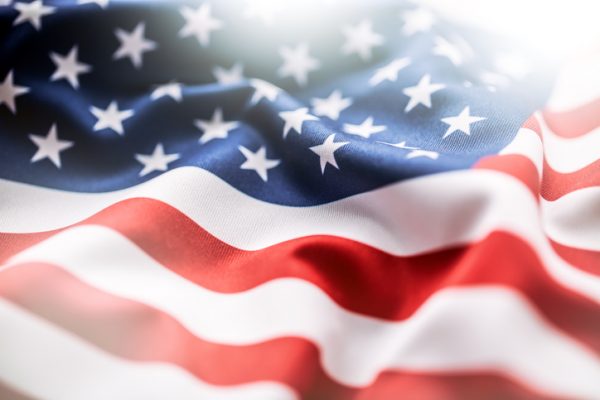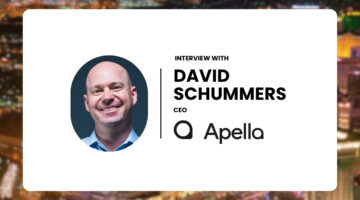
Former President Donald Trump’s return to the White House will undoubtedly bring about changes in the healthcare world — most likely in the forms of scaling back federally funded insurance programs like Medicaid and Medicare and enabling additional restrictions on reproductive care.
When his election victory was announced, I was attending the Behavioral Health Tech conference in Phoenix, so I interviewed attendees on Wednesday to get a pulse check on how leaders in the behavioral health space were reacting to the news. Many of the people I spoke with were reluctant to speak on the record given the divisive nature of our nation’s politics and the fact that they were representing their employer at a professional conference.
Still, conversations I had with people who were willing to speak (whether it was anonymously or on the record) revealed that people had a range of emotions — from cautiously optimistic to fairly anxious — about Trump’s impact on the industry. Most people noted that they were still digesting the news and acknowledged that there are a lot of unknowns when it comes to how much of an impact Trump’s victory will have on the sector.

Transforming the OR: CEO Reveals Game-Changing AI Tech for Better Efficiency
How Apella leverages technology to increase OR efficiency.
Mental health parity
Mental health parity was an issue that several attendees mentioned. In September, the Biden-Harris administration passed a law strengthening protections for mental health parity, requiring payers to cover mental health and addiction services the same as they would any physical condition.
“We’ll see if the mental health parity rule that was passed very recently sticks, or if the new administration is going to do away with it. It’ll be interesting to see what happens there and how our industry reacts in the meantime,” said Amanda Hariton, senior director of customer success at Lucet.
Another healthcare leader — Nisha Desai, COO of Anise Health — expressed optimism that the federal government may uphold mental health parity protections under Trump.
“Mental health has been a fairly bipartisan issue. There has already been movement towards parity at the federal level that I don’t anticipate going away, so in terms of coverage and funding for it, I think we’ll be okay,” Desai remarked.
She said that she is more worried about whether the new Republican administration will have a detrimental effect on culturally responsive care and how underserved populations are cared for, given the Trump campaign’s rhetoric.
“If we’re not solving for the workforce side of the issue, then that demand is going to far exceed the supply and the capacity that we have of diverse therapists. Is there going to be emphasis placed on getting more clinicians of color into grad school programs? All of that at a more fundamental level, I don’t think is going to be the priority,” Desai declared.
The past few weeks’ election rhetoric may also cause a spike in mental health demand, Desai noted, as some people’s expectations for a first female president were dashed. She anticipates there will be a similar effect as the 2016 election when Hillary Clinton lost her bid and the country saw a significant spike in demand for mental health services.
Potential role of Robert F. Kennedy Jr.
Trump has promised that Robert F. Kennedy Jr., who ended his own independent presidential campaign earlier this year, will have a “very big role” in healthcare.
Some attendees expressed concern about Kennedy’s future leadership in the federal government’s health policy, given that he is a lawyer without a background in the healthcare field and holds controversial positions on vaccines among other things tied to public health.
“It’s concerning,” said Hariton of Lucet. “I don’t know if a healthcare role is really the right space for him.”
She, and other attendees who wish to remain anonymous, pointed to his stance on vaccines as a point of concern. Kennedy has served as chairman and founder of Children’s Health Defense, a group dedicated to anti-vaccine advocacy.
In a Wednesday interview with NBC News, Kennedy said that he will not ban vaccines.
“If vaccines are working for somebody, I’m not going to take them away. People ought to have choice, and that choice ought to be informed by the best information,” he said. “So I’m going to make sure scientific safety studies and efficacy are out there, and people can make individual assessments about whether that product is going to be good for them.”
One attendee who opted to be anonymous noted that while she is concerned about Kennedy’s vaccine stance, she has some hope that he might work to improve the nation’s food supply. During his own presidential campaign, Kennedy criticized the amount of additives and preservatives present in the U.S. food supply, often stating that these “poison” Americans.
Two other attendees who did not want to speak on the record also mentioned that they were interested to see whether Kennedy would be successful in challenging pharmaceutical companies, of which he has been an outspoken critic.
Telehealth prescribing
The Drug Enforcement Administration has extended providers’ ability to prescribe controlled substances via telehealth through December 31 of this year, but it remains unclear whether those flexibilities — which were originally established during the Covid-19 pandemic — will become permanent. Some attendees mentioned that they are eager to see how the upcoming Trump administration will handle this.
“I think one of the bipartisan issues that people come together on is that we’ve seen continued support of extending [prescribing] regulations that were softened during the pandemic. I am hopeful that there’s still goodwill and that there’s going to be bipartisan support to continue to make sure access to mental health care is there, but I think there’s a lot that is unknown,” said Jenna Glover, chief clinical officer at Headspace.
Glover also noted that there are “big unknowns” when it comes to the Trump administration’s stance on innovative mental health therapies like psychedelics.
Marissa Plescia also contributed to this report.
Editor’s note: This story is based on discussions at Behavioral Health Tech, a conference held this month in Phoenix. MedCity News reporters Katie Adams and Marissa Plescia were invited to attend and moderate sessions at the conference, and all their travel and related expenses were covered by Behavioral Health Tech. However, company officials had no input in editorial coverage.
Photo: MarianVejcik, Getty Images








